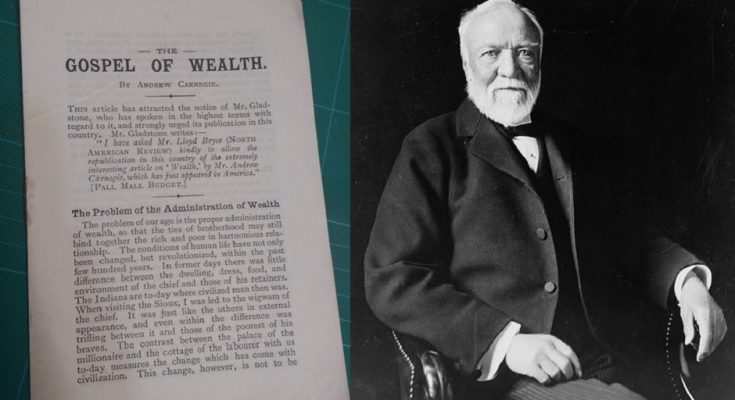Born in 1835 in Dunfermline, Scotland, Andrew Carnegie immigrated to the United States with his impoverished family in 1848. At the age of 13, he began working as a bobbin boy in a cotton factory in Pittsburgh, earning $1.20 a week — a meager wage that contributed to his family’s survival.



Despite his humble beginnings, Carnegie was determined to rise above his circumstances. He worked various jobs, including as a telegraph messenger and later a railroad superintendent’s assistant. With a keen eye for opportunity and a relentless drive, he began investing in railroads, bridges, and oil derricks, gradually amassing wealth and experience.
By the 1870s, Carnegie shifted his focus to steel production, founding what would become the Carnegie Steel Company. Through innovations in production and aggressive business tactics, he built the largest steel empire in America, playing a crucial role in the nation’s industrial growth.
In 1901, Carnegie sold his steel company to J.P. Morgan for a staggering $480 million (equivalent to over $15 billion today). With his fortune secured, he turned to a new mission: philanthropy.
Carnegie believed in the Gospel of Wealth — the idea that the rich are morally obligated to distribute their wealth for the public good. Staying true to this belief, he donated 90% of his fortune during his lifetime, funding education, peace initiatives, and culture.
One of his most lasting legacies was his commitment to knowledge and learning. He funded the creation of over 2,500 public libraries in the U.S., the UK, and other countries, ensuring that access to books and learning would not be a privilege of the wealthy, but a right for all.
Legacy
Andrew Carnegie died in 1919, but his contributions still echo around the world. Many libraries bearing his name remain operational today, and his foundations continue to fund education and research. His life is a testament to the transformative power of hard work, vision, and the belief that wealth should serve a higher purpose.



